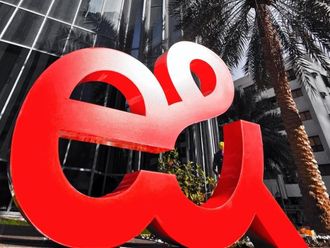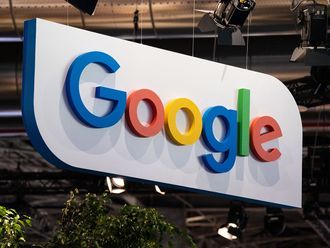My friend Andy and I had a private memorial at my desk the other day to remember an old pal who will likely be pushing up daisies by the end of the year: Palm, Inc.
At one time, Palm was king. I remember when a friend brought her Palm Pilot into a newsroom in 1998. For many of us, Palm was the first time we could carry around a small computer in our pocket. We could keep track of appointments, write documents, manage contacts and even play games. By today's standards, that's basic functionality, but in 1998 it was ‘da bomb.
Andy still has a Palm, which he uses mainly as an e-reader. By his own admission, Andy's a bit of a Luddite, at least a far as techies go.
There is little doubt now that Palm is finished. After the failure of the company's latest smartphones, the Pre and the Pixi, to revive sales, it was announced last week that the company was putting itself up for sale.
Ours wasn't much of a memorial, really. It was more a discussion on how the mighty have fallen, only to rise back up with new energy before being mowed down again by a two-tonne truck that they never saw coming.
BlackBerry's introduction of its smartphone line in 2002 was the first crippling blow to Palm. Putting a phone into a PDA? Who'd a thunk it? Not Palm. Over the next couple of years, Palm struggled to introduce a smartphone that could compete. It never did, and the company witnessed a management overhaul in 2005.
That seemed to be a theme with Palm. Instead of coming out with new technology that drove consumers wild, the company has been playing catch-up for the past eight years. Example: despite the fact that Palm was one of the first on the market with a touch screen, it's Apple that dominates the headlines with the iPad.
When Palm finally re-emerged with a viable phone in 2009, it was crushed by a market dominated by the iPhone and the new rising giant, the Android. We may still see Palm around, however, but it will likely be under another label.
Suitors
Morgan Stanley released a report saying Motorola might be interested in buying the company to get the rights to the PalmOS (operating system), but that would have to be one of the dumbest acquisitions of all time. Motorola just made the jump to Google's Android OS this year after a couple years of struggling. Why would they want to move back to an OS that has yet to prove it can succeed?
Any acquisition by Nokia makes for more sense; especially if it wants to expand the number of apps it has available. Nokia's current selection is frustrating, but Palm does have an impressive lineup of games, social networking apps and utilities. It would be a chance for Nokia to make up some lost ground in an area where they, frankly, stink.
The report also mentioned RIM, the makers of BlackBerry, and Chinese phone maker HTC as companies that would be strategically placed to acquire Palm. I have a hard time seeing HTC, which has made giant leaps forward thanks to Android, wanting to acquire the PalmOS.
Ironically, it might be RIM, the company that ended Palm's reign almost a decade ago, which would be the best suited for Palm. Their OS has never been stellar, and certainly never cool, but as a phone aimed more at business people, it never really had to be. If RIM could somehow integrate the PalmOS into its system, it could help the company more in the mass consumer market.












